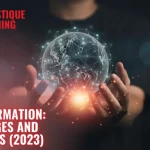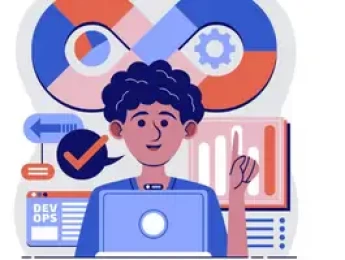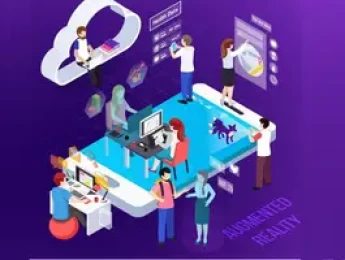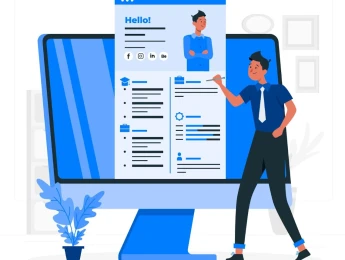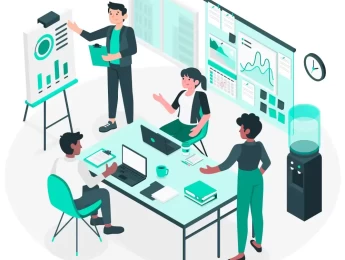One of the most significant learning areas for this decade is digitalisation. It is impacting every industry, including oil and gas operations. Digitalisation improves efficiency in daily work and removes barriers that mean production can be boosted without negatively impacting costs. Effective digitalisation is very much needed in the field, and therefore, all staff must have a good understanding of its impacts.
In this course, you can see just how efficiency is added by taking advantage of digitalisation. You will gain a solid foundation in digital engineering, and this will not only improve daily working practices but will give you additional skills for career progression. The course will cover the entire framework of the digital oilfield, and all participants will be able to gain hands-on experience with modern cyber model design and optimisation. Another critical issue of digitalisation is cyber security, so the modules will also delve into exactly what this means and how end users can help keep the data safe. During the course, you will have the opportunity to learn about the organisational impacts of digitalisation and explore machine learning and artificial intelligence. Finally, you will get the chance to look at digital twin applications.
Upon completion of this course, participants will be able to:
- Understand the cyber representation of physical assets and its implications.
- Understand and evaluate modern information flow and control models.
- Manipulating and working with digital engineering and the Fourth Industrial Revolution (4IR).
- Prepare the current workplace for the coming generation of digital natives.
- Understand and use the convergence of operational technology and information technology.
- Demonstrate knowledge of digital connectivity and the exponential growth of technology.
This course is intended for
- Data scientists.
- Digitalisation contractors.
- Operations supervisors.
- Production engineers.
- Reservoir engineers.
- Compliance and safety officers.
- Drilling and completion engineers.
- Instrumentation and control engineers.
- Well services and field operators.
- Geologists and geophysicists.
- Cybersecurity analysts.
- Computer security analysts.
- IT specialists and managers.
- Planning and business analysts.
Teaching takes place in various settings including face-to-face in a classroom environment and will ensure that participants can expand their knowledge of the subject and increase their skill set. The course is delivered via various methods by a specialist tutor. This will include PowerPoint presentations, reviewing articles and other relevant materials, group or individual exercises and discussions. There may be some independent work set, and the course will require submitting articles to demonstrate understanding and an end-of-course test. Note-taking is encouraged, and you are welcome to use electronic devices to do this.
The course manual will form part of the learning but will give you references for the future. You are encouraged to ask questions and, if needed, spend time one-on-one with your tutor to review any issues. You can network with peers in similar roles during your time in the classroom.
Day 5 of each course is reserved for a Q&A session, which may occur off-site. For 10-day courses, this also applies to day 10
Section 1: An Introduction to Digital Industry in Oil and Gas
- Digital oilfield components
- What are monitor and control networks?
- Understanding automation systems
- What have we already learned from digitalisation ventures?
- What is the value of legacy-based data?
- Making informed decisions for intelligent operations
Section 2: Digitalisation at Work
- The Oil & gas industry as a system
- What is the value of digitalisation
- What can digitalisation do for HSSE
- What are the organisation and behavioural aspects of digitalisation
- Machine learning: what is it, and how can we use it
- Digitisation and artificial intelligence
Section 3: Cybersecurity: Protecting and Integrating
- What is a cybersecurity threat, and what are the implications
- The Oilfield is a critical infrastructure
- What is the difference? Cybersecurity v physical security
- Some integrated solutions
- What are digital policies?
- Understanding Cybersecurity concerns for contractors/subcontractors.
Section 4: Applied Petroleum Informatics Basics
- What is secure network architecture?
- Understanding function-specific design.
- What is the digital twin concept?
- What is the difference? Digital twin vs traditional simulation.
- How virtual reality plays a part in applied petroleum informatics.
- Using collaborative online environments.
Section 5: Modern Information Related to Data Flow
- Using big data for big opportunities.
- Understanding data and information flow.
- What are control network deployment patterns?
- Defining logical operations control centres.
- Digitisation project assignment concepts.
- Best practices for project design/optimisation.
Upon successful completion of this training course, delegates will be awarded a Holistique Training Certificate of Completion. For those who attend and complete the online training course, a Holistique Training e-Certificate will be provided.
Holistique Training Certificates are accredited by the British Assessment Council (BAC) and The CPD Certification Service (CPD), and are certified under ISO 9001, ISO 21001, and ISO 29993 standards.
CPD credits for this course are granted by our Certificates and will be reflected on the Holistique Training Certificate of Completion. In accordance with the standards of The CPD Certification Service, one CPD credit is awarded per hour of course attendance. A maximum of 50 CPD credits can be claimed for any single course we currently offer.
- Course Code IND01-102
- Course Format Classroom, Online,
- Duration 5 days


